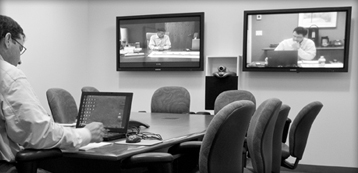Tort Developments in Connecticut Law: Significant Connecticut Supreme Court and Appellate Court Decisions
November 2014
James E. Wildes, Esq. from the New Haven Bar recently wrote an article on significant Connecticut Supreme Court and Appellate Court decisions in 2013. The areas of discussion include damages, defective highway, governmental immunity, premises liability, professional liability, trial practice and uninsured and underinsured motorist liability.
Here are a few bullet points from Wildes’ article entitled Tort Developments In 2013:
• The time to plead from the preceding pleading has been extended to thirty days from fifteen days.
• Practice Book Section 5-9 has been repealed so that it is no longer necessary to provide a copy of opinions which are not officially published to the judicial authority and opposing parties since such opinions are easily accessed by the court and most parties.
• A privilege log must now be provided by a party objecting to discovery based on a claim of privilege or work product in response to a discovery request for documents or electronically stored information within forty-days of the request of the party serving the discovery. It is noted that a privilege log is not required with respect to written or electronic communications after commencement of the action between a party and the firm or lawyer appearing for the party in the action or as otherwise ordered by the judicial authority.
• It is no longer necessary for a certificate of closed pleadings to be filed before the court may assign a case for trial.
• Additional standard discovery is now mandated in personal injuries actions alleging liability based on the operation or ownership of a motor vehicle or alleging liability based on the ownership, maintenance or control of real property. Specifically, standard discovery is now mandated where workers’ compensation benefits were paid.
• Summary judgment motions may now be directed to a defense.
• It has also been clarified as to when a party may move for summary judgment: if a scheduling order has not been entered and the case has not been assigned for trial, then the parties may file a motion for summary at any time; if a scheduling order has been entered, then the parties may file a motion for summary judgment, as a matter of right, pursuant to the scheduling order; if no scheduling order has been entered and the case has been assigned a trial date, then a party must move for permission to file a motion for summary judgment.
